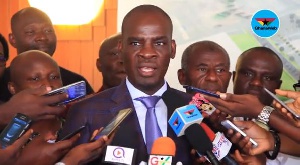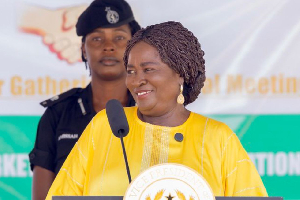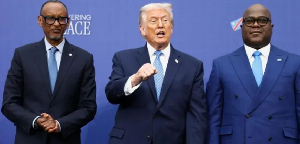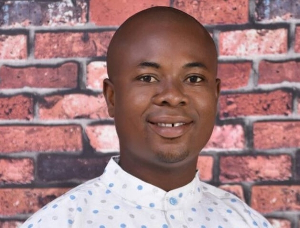Members of Parliament on Wednesday could not help laughing when Minority Leader Haruna Iddrisu struggled to mention the word “turbidity” during contributions to approve the budget estimates of the 2019 financial year for the Ministry of Sanitation and Water Resources.
The House approved the estimate of GH¢245.8 million for the Ministry, after the Minority Leader had endured his struggle and replaced “turbidity” with “murkier” to explain the pollution of water bodies across the country.
Turbidity is a measure of the degree to which the water loses its transparency due to the presence of suspended particulates. The more total suspended solids in the water, the murkier it seems and the higher the turbidity. Turbidity is considered as a good measure of the quality of water.
Turbidity is an important indicator of the amount of suspended sediment in water, which can have many negative effects on aquatic life. The suspended sediments that cause turbidity can block light to aquatic plants, smother aquatic organisms, and carry contaminants and pathogens, such as lead, mercury, and bacteria.
The Minority Leader told the House of how he travelled through Bekwai, the Constituency of the First Deputy Speaker Joseph Osei Owusu through some parts of the Ashanti Region, to a funeral of former late colleague M C Boampong, former MP for Bia West Constituency.
According to the Minority Leader, he realised during that trip how water bodies in mining areas had been murkier, and appreciated more the fight against “galamsey”, a pseudonym for the small scale illegal mining in Ghana.
He queried the basis of additional staff to the Water and Sanitation Ministry, and noted that, there was a duplication of policies; and activities such as digging of boreholes, construction of dams and toilets by the Water and Sanitation and the Ministry of Special Initiatives.
Mr Idrdisu also asked for more details in the siting of water projects in the Report of the Works and Housing Committees, mentioning specifically the Upper East Region.
According to the Minority Leader, funding for the programmes in the estimates was donor based, which he said was contrary to the “Ghana Beyond Aid programme,”
Mr Iddrisu, who is also the MP for Tamale South, suggested to Government to come out with a monitoring mechanism on how much contribution was being made by the allocation and activities in the sector Ministry towards the achievement of the Sustainable Development Goals.
In September 2015, the General Assembly of the United Nations adopted the 2030 Agenda for Sustainable Development that includes 17 Sustainable Development Goals (SDGs). Building on the principle of “leaving no one behind”, the new Agenda emphasizes a holistic approach to achieving sustainable development for all target.
Goals Six of the SDG target is to achieve, among other things by the year 3030, universal and equitable access to safe and affordable drinking water for all; achieve access to adequate and equitable sanitation and hygiene for all and end open defecation, paying special attention to the needs of women and girls and those in vulnerable situations.
It also expects improved water quality by reducing pollution, eliminating dumping and minimizing release of hazardous chemicals and materials, halving the proportion of untreated wastewater and substantially increasing recycling and safe reuse globally; and substantially increase water-use efficiency across all sectors and ensure sustainable withdrawals and supply of freshwater to address water scarcity and substantially reduce the number of people suffering from water scarcity
Also by 2030, implement integrated water resources management at all levels, including through transboundary cooperation as appropriate; protect and restore water-related ecosystems, including mountains, forests, wetlands, rivers, aquifers and lakes.
Mr Kwaku Asante Boateng, MP for Asante-Akim South Constituency, commended the nursing of seedlings along water bodies.
The Committee Report recommended improvement and increase of sanitation coverage nationwide and urged the Ministry to intensify its lead role in promoting sanitation.
“Public education on the need for a clean environment should be intensified, and national by-laws on sanitation enforced.
“This, in the view of the Committee, would bring about the needed attitudinal change to sustain the gains,” the report said.
General News of Thursday, 13 December 2018
Source: ghananewsagency.org













